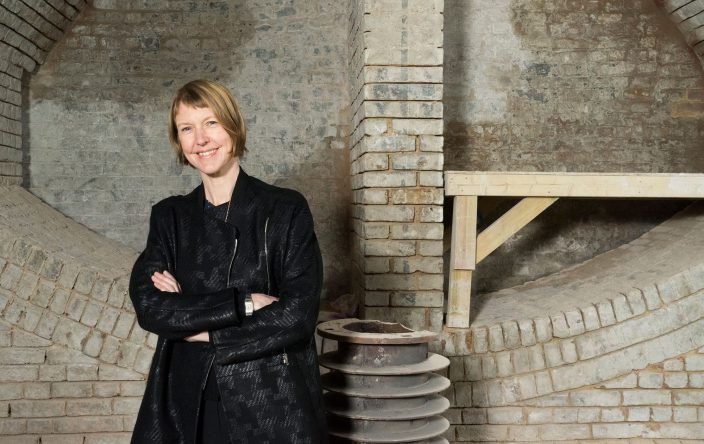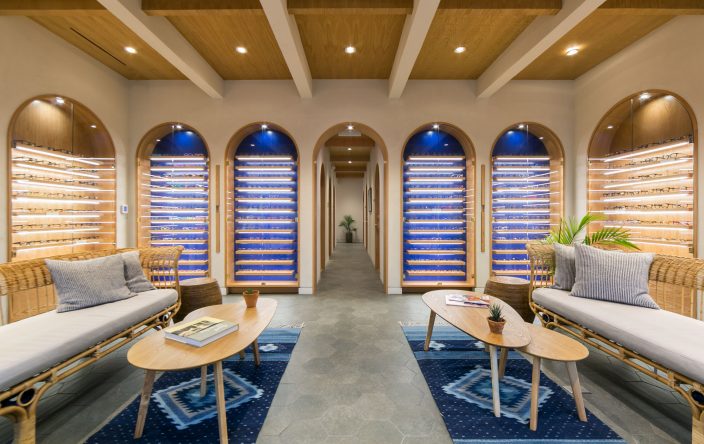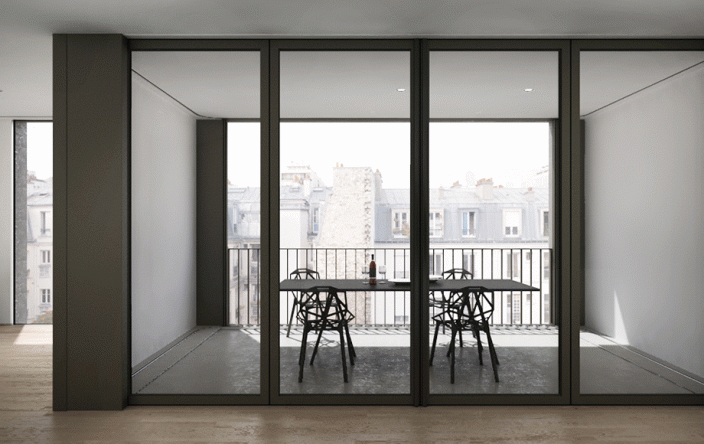
How To Start Your Own Architecture Firm With Eric Reinholdt
This week’s interview is with Eric Reinholdt the founder of 30X40 Design Workshop from Maine, USA. Eric is also passionate about combining architecture with entrepreneurship, a union of which led him to write his book, Architect + Entrepreneur: A Field Guide to Building, Branding, and Marketing Your Startup Design Business. You may like to read the review of his book in my earlier post.
Eric wrote this book because he wished that he had this sort of guide when he started his own firm 30X40 Design Workshop. So this interview will be particularly interesting for those of you who are thinking about starting your own architectural practice or interior design business.
Here are Eric’s thoughts and tips on architecture, entrepreneurship and starting a practice.
I hope you enjoy his interview!
What made you decide to become an entrepreneur and found the 30X40 Design Workshop? Was there a particular moment that sealed the decision for you?
I was working for a small six-person firm which was struggling in a slow economy. Rather than thin the ranks, everyone agreed to take a 20% pay cut. As part of the agreement we were given the option to continue to work a full, five-day work week or work four days and take the fifth to pursue outside work. That was the moment when I realized I had to build something of my own and when I began laying the foundations for 30X40.
Want to start you own practice? Read this…
On my daily commute I listened to podcasts: Pat Flynn’s Smart Passive Income, The Tropical MBA, This Week In Startups and Internet Business Mastery and I read The Four Hour Work Week by Tim Ferriss which changed my life. Together these resources inspired me to think differently about what an architecture practice in today’s economy might look like.
I think too often we buy into the myth that working for someone else – being an employee – offers job security. But, the change in my personal work situation really made me question that idea. I realized that I couldn’t count on an employer to offer me job security, I had to create it for myself.
What do you find the most fulfilling about your current job as an architectural entrepreneur?
Without question it’s the freedom I have. I set a work schedule that balances my professional pursuits with my family life. I choose which projects and commissions I’ll accept. I’m free to experiment, to set the course for my business, to pivot when things aren’t working, and to capitalize on successes. Overall, building a business has been an extremely liberating experience for me.
As architects we’ve been trained to see only one way to practice architecture. It takes root in school and it’s nurtured throughout the architectural internship. This is because so many professionals have relied on the consulting model to deliver architectural services. Yet there are so many other options to explore beyond trading time for dollars. Consulting is the least scalable business model that exists.
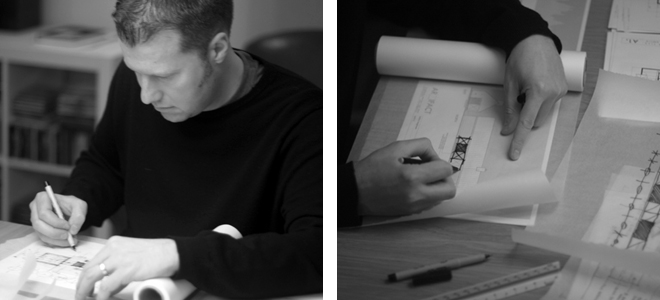
How has your architectural training helped you in the actual running of your business? What specific/transferable skills have proved the most useful?
I’m afraid to say traditional architectural training has little to do with the day-to-day operations of my business. The rift between business and design has persisted because the allure of an architectural education is wrapped up in form-making, visualization, representation, and concept generation not business acumen.
All of these skills are extremely valuable, and none that I’d trade away, but, the goal of any academic institution should be to educate the “whole” professional and to practice architecture requires a basic working knowledge of business. Consequently, I had to seek business training out on my own. For me, listening to business podcasts was my “commuter MBA.”
To the degree that business training was lacking, lateral thinking and problem solving skills were wholly ingrained and well developed and those talents have served me well in business. The ability to analyze, dissect, and communicate the solution to a problem from a variety of perspectives is an asset to any business.
Do you have any advice for architects who are interested in starting their own design business? How can you start without any money?
Start today…! I suffered from analysis paralysis for a long time, fearing I’d never be able to save enough working capital to make a run at starting a business. I was determined to spend as little as possible to make it work. Honestly, you don’t need much to start: a laptop, an internet connection, and a smart phone. With these things you can start almost any business you’d like. Having a client or two will bump up your chances for success, but it’s certainly not mandatory.
In my book I advocate the lean startup methodology (check out: The Lean Startup by Eric Ries) whereby you develop a minimum viable product first and then sell that idea to consumers. By doing this you don’t invest heavily in any one idea, you test ideas in the marketplace using real consumers. You try things, fail, pivot, and try again. Once you find the thing that works, you build on those ideas, add features and start to scale it up.
This method requires very little capital to begin a business because once you have a product a consumer wants you establish cash flow and make the business about filling that need at a reasonable price with built-in profit. This works with services as well as products.
To do this, use the resources you have on hand. Don’t quit your day job (yet), work on your business during your commute, during your lunch break, and in the evenings. Wake up at 4:30am every day and tick off items on your to-do list. You’ll be amazed at how much you can accomplish with consistent effort each day.
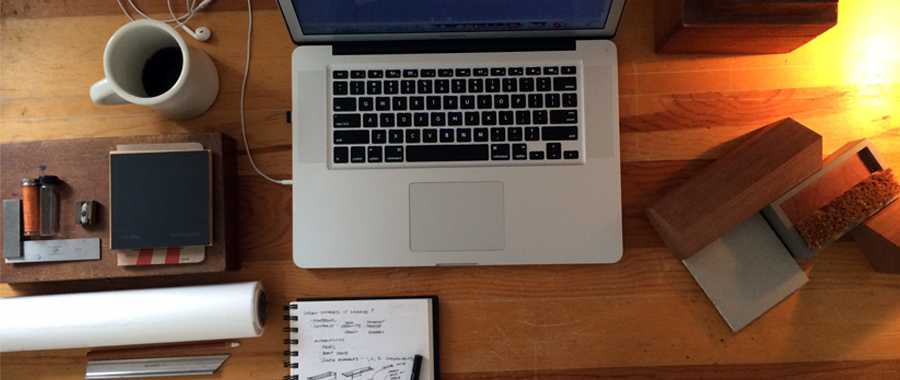
How do you see the future of architecture? In which areas (outside of traditional practice) can you see major opportunities for up and coming architects?
I’m truly excited about the possibilities confronting architects today. I feel fortunate to be practicing now at this crossroads of technological innovation and globalization. The integration of technology in architecture really excites me; we’ve only scratched the surface of what’s possible – smart facades, wearable sensors that interact with building components, 3D printing of structures, virtual environments, gaming, UX design – the list of fields where architects can play a role is growing every day.
Understanding how people use space in commercial and residential environments is important. And how design is impacting by these patterns is a huge opportunity. Just as the way we document and design changed, the way we are constructing buildings is poised for a monumental shift too. Problems of density and resource conservation need designed solutions – who better to solve these problems than architects?
Architect + Entrepreneur is a story about possibility; I hope in a small way that it helps to effect positive change in our profession.
About Eric
Eric Reinholdt is an award-winning architect, mountain climber, designer, guitar player, paper cutter, blogger and author. He is the founder of 30X40 Design Workshop, a residential design studio bordering Acadia National Park on Mount Desert Island just off the coast of Maine. This is where he lives and practices in a modern Longhouse, designed by him with his family.
His architecture is simple, modern, site-specific, and craft-driven. It features local materials and familiar forms juxtaposed against modern, open floor plans with minimalist detailing. The work celebrates humble materials, subtle contrasts and finely crafted details.
Join our Newsletter
Get our best content on Architecture, Creative Strategies and Business. Delivered each week for free.
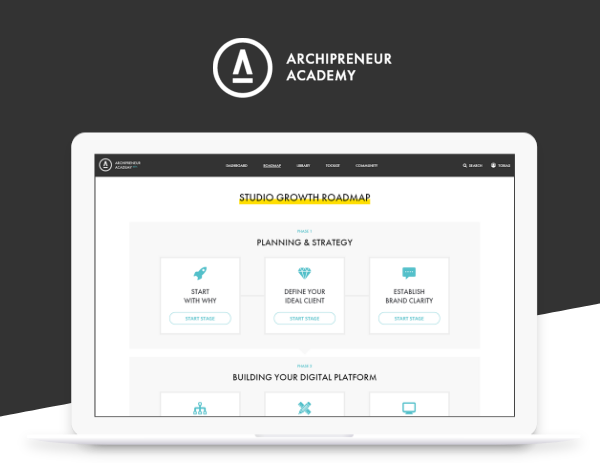
JOIN THE
ARCHIPRENEUR ACADEMY
- 9 Stage Studio Growth Roadmap
- Library of In-Depth Courses
- Checklists and Workbooks
- Quick Tips and Tutorials
- A Supportive Online Community







